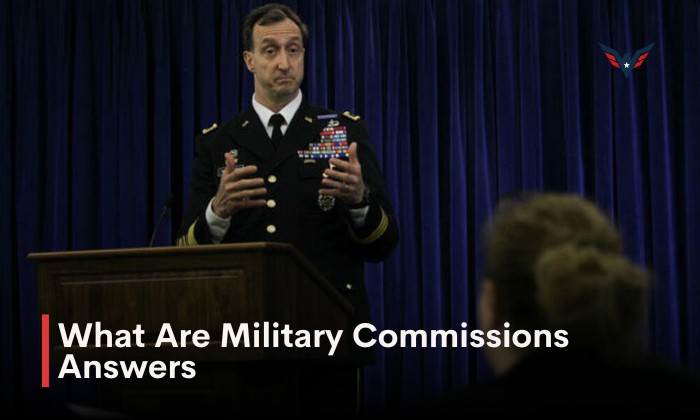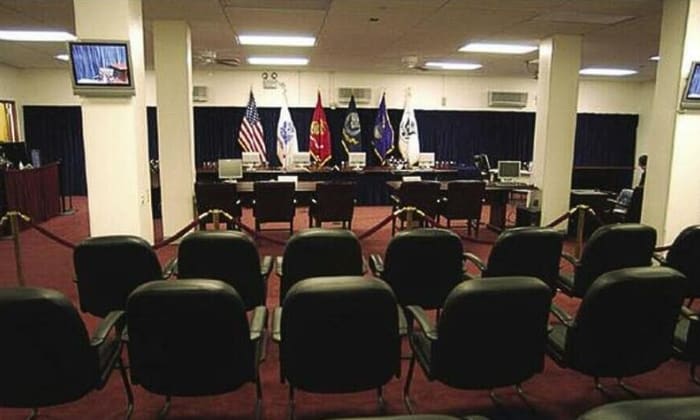If you’re taking a social studies class at school, you’ve likely heard of the concept of military commissions. In any case, the term might even show up on a test, making it essential that you understand its meaning.
So, for those wondering what military commissions are, answers to this question will be one of the following:
A. A special court that tries cases involving military offenses against civilians
B. A board of officers who make decisions on veterans’ appeals
C. A special court that investigates wrongdoing by military officers
D. A special court set up by the executive branch to try suspected terrorists
The order of these answers might get shuffled around a bit during examinations. In this case, the correct choice is D.
Read below to learn more about this special court in American law.
Table of Contents
Facts on Military Commissions
The Bush administration established military commissions in 2001.
The purpose of this court was to trial suspected terrorists who were:
- Not citizens of the United States
- “Illegal enemy combatants” who violated the laws of war
- Members of al Qaeda
- Those engaged in or conspired to commit terrorism on the United States and its citizens
Though the 2001 order on military commissions mandated humane treatment of detainees, it was criticized for a number of reasons, including but not limited to:
- Detainees not being allowed access to attorneys or any forms of communication
- The term “illegal enemy combatant” did not comply with the Geneva conventions, which only defined “prisoner of war,” “combatant,” and “civilian.”
- There was no limit on how long the commissions could keep “enemy combatants” in custody, and no mention of detainees’ right to appeal or have public trials.
So, those awaiting judgment were deprived of fundamental legal rights under the US judicial and military justice system.
Eventually, the 2001 military commissions order was struck down by the Supreme Court in 2006, due to its violation of fair trial standards under the Geneva Conventions and the Uniform Code of Military Justice.
As a response, President Bush signed a new Military Commissions Act (MCA) in the same year. However, the law notably restricted detainees’ use of habeas corpus, which would allow them to report unlawful detention and have their case heard in front of federal courts.
For this reason, the MCA was deemed partially unconstitutional in 2008 and amended in 2009 to improve its treatment of defendants, though there are still criticisms of its lack of due process.
Now, you may wonder: “Is the MCA still in effect?” The answer is yes. Over two decades since its inception, cases under the military commissions are still ongoing.
It remains to be seen when they will be resolved and how military commissions will continue to change, or, as some have suggested, how or whether we will bring this trial system to an end.
Conclusion
Military responses to terrorism are crucial in ensuring national security and preserving human life.
While different people will have varying thoughts on military commissions, controversial as they are, it’s undeniable that these systems have become a part of US history, considering you can find different versions of them from the Revolutionary War until now.
Hopefully, this article has provided some insight into what military commissions are, answers that can help you understand the American legal system better.

I am Everett Bledsoe, taking on the responsibility of content producer for The Soldiers Project. My purpose in this project is to give honest reviews on the gear utilized and tested over time. Of course, you cannot go wrong when checking out our package of information and guide, too, as they come from reliable sources and years of experience.


